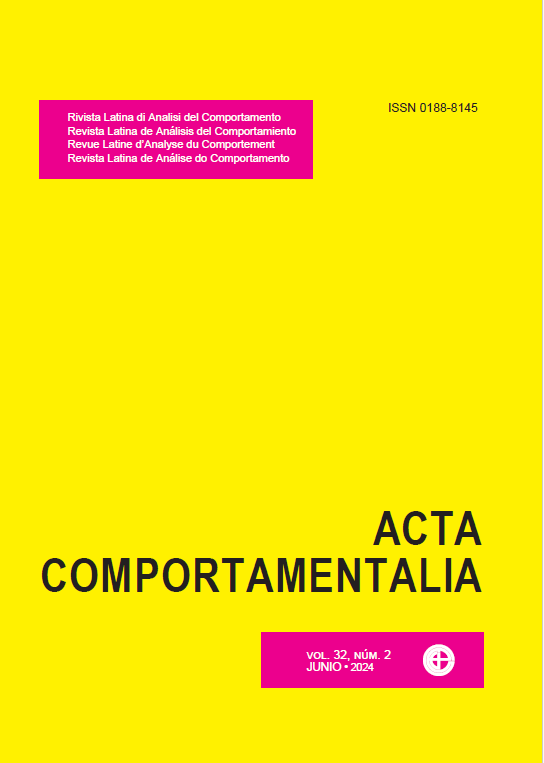“Perception of Personal Causality” by College Students
DOI:
https://doi.org/10.32870/ac.v32i2.88347Keywords:
“perception of personal causality”, response-stimulus delay, temporal discrimination, pigeons, humansAbstract
“Perception of personal causality” has been studied with pigeons by turning off a key dependently or independently of pecking on such key. Then, a key is lit on each side. Pigeons must peck one key after a dependent stimulus change (SC) or the other key after an independent SC. It has been observed that the accuracy of pigeons’ perception of personal causality decreases by lengthening the delay between responses and dependent SCs. The present study replicated this procedure to find out whether the delay between responses and dependent SCs determines the perception of personal causality in humans as in pigeons. Delay varied between 0, 0.5, 1, 2, and 4 s. Correct responses by humans decreased by lengthening the delay, as with pigeons. Receptor Operative Characteristic curves did not show systematic biases in participants’ reports as the delay was lengthened. It was concluded that pigeons and humans discriminate between response-dependent and response-independent SCs based on the time elapsed between their last response and the SC, according to a conditional discrimination.
Downloads
Downloads
Published
How to Cite
Issue
Section
License

<a rel="license" href="http://creativecommons.org/licenses/by-nc-sa/4.0/"><img alt="Licencia de Creative Commons" style="border-width:0" src="https://i.creativecommons.org/l/by-nc-sa/4.0/88x31.png" /></a><br />Este obra está bajo una <a rel="license" href="http://creativecommons.org/licenses/by-nc-sa/4.0/">licencia de Creative Commons Reconocimiento-NoComercial-CompartirIgual 4.0 Internacional</a>.






